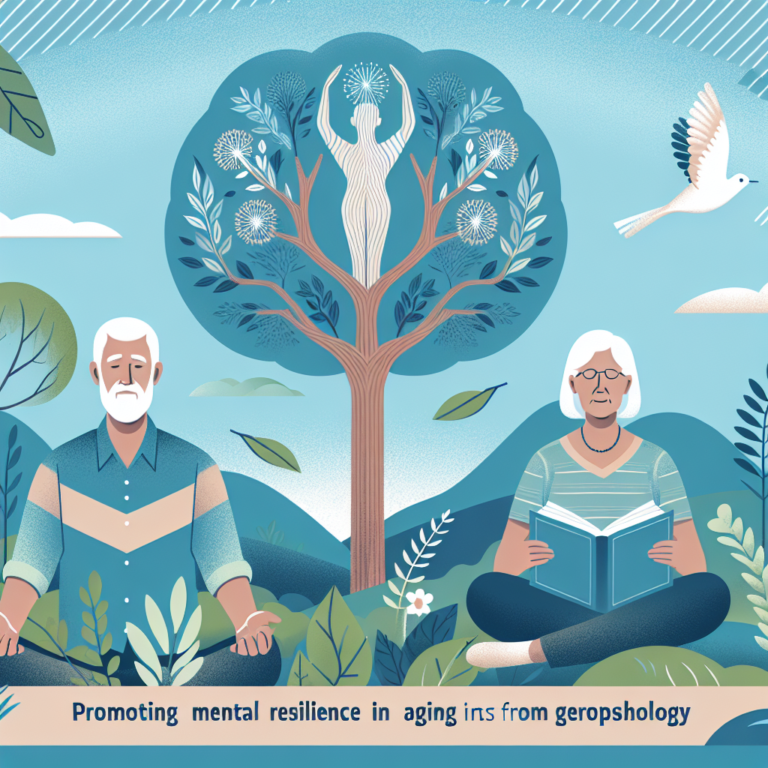
Introduction
In a world that’s increasingly demanding and fast-paced, stress seems to be an inescapable part of daily life. Whether it’s the pressure of deadlines, the burden of responsibilities, or personal relationships, stress lurks in the shadows, silently wreaking havoc on our mental well-being. The statistics are staggering: roughly 33% of individuals experience extreme stress, while nearly 80% report feeling stressed at work. This article dives deep into Stress and Its Silent Toll: Unpacking the Psychological Impact of Chronic Stress, revealing how this insidious health issue can affect our lives in unimaginable ways.
Understanding this phenomenon not only empowers individuals to recognize its signs but also motivates them to take action, making it an essential topic for everyone navigating the complexities of modern life.
The Science of Stress
Stress Defined: A Double-Edged Sword
Stress is often portrayed as a nuisance or a temporary hindrance. However, it’s crucial to understand that stress serves a biological purpose. Essentially, stress is the body’s response to perceived threats, whether they are real or imagined. This response, often referred to as the “fight or flight” mechanism, releases hormones like cortisol and adrenaline, which prepare us to confront challenges. Short bursts of stress are manageable and can even enhance performance. Yet, when stress becomes chronic, it shifts from being a motivator to a saboteur.
The Biological Impact
Chronic stress doesn’t just affect feelings; it physically alters our brain structure and chemistry. Studies show changes in areas such as the amygdala—responsible for fear responses—and the prefrontal cortex, which governs decision-making and emotional regulation.
| Aspect of Brain Affected | Impact of Chronic Stress |
|---|---|
| Amygdala | Heightened fear responses |
| Hippocampus | Impaired memory formation |
| Prefrontal Cortex | Difficulty with decision-making and impulse control |
The Psychological Effects of Chronic Stress
Anxiety and Depression
The relationship between chronic stress and mental health disorders like anxiety and depression is well documented. Chronic stress creates a feedback loop that triggers anxiety, making it more challenging to cope with everyday pressures.
Case Study: The Corporate Professional
Consider Jamie, a corporate lawyer who faced eight-hour work days compounded by high client expectations. Over time, Jamie developed anxiety that spiraled into major depression. A combination of therapy and lifestyle changes eventually helped Jamie regain control. This case illustrates how prolonged stress can lead to severe psychological consequences, emphasizing the need for awareness and proactive strategies.
Cognitive Function Impairment
Chronic stress doesn’t just clutter emotional pathways; it also wreaks havoc on cognitive functioning. Stress can lead to difficulties in concentration, memory lapses, and even slowed reaction times.
Case Study: The Busy Parent
Sarah, a mother of three with a full-time job, struggled to keep track of her tasks and deadlines due to overwhelming stress. Cognitive behavioral therapy helped her learn effective coping strategies, which significantly improved her focus and productivity. This highlights the critical link between managing stress and enhancing cognitive function.
Impact on Relationships
Chronic stress can ripple through our relationships, often leading to conflicts, misunderstandings, and even breakdowns in communication. When we’re overwhelmed, we may react defensively or withdraw, affecting our social interactions.
Case Study: The Strained Couple
Mark and Lisa, a married couple, found that their once-happy relationship deteriorated due to stress from work and family obligations. Through couples therapy, they learned to communicate more openly about their fears and stressors, which ultimately strengthened their bond. This illustrates how addressing chronic stress can revitalize personal relationships.
Coping Mechanisms: Breaking the Cycle
Mindfulness and Meditation
Implementing mindfulness practices is essential in combating the psychological effects of stress. Research shows that mindfulness can lead to decreased levels of cortisol and improved emotional regulation. Simple practices like meditation, yoga, and deep-breathing exercises can pave the way toward a calmer mind.
Exercise: A Natural Antidote
Physical activity is another powerful tool against chronic stress. Exercise releases endorphins, acting as natural stress relievers. Regular aerobic exercises can also improve cognitive function and mood.
| Type of Exercise | Impact on Stress |
|---|---|
| Aerobic | Increases endorphin levels |
| Strength Training | Improves confidence and mood |
| Mind-Body Practices (Yoga) | Promotes mindfulness and relaxation |
Professional Help: Therapy and Counseling
Sometimes, professional intervention can be necessary. Therapists specializing in cognitive-behavioral therapy (CBT) can help address distorted thinking patterns and develop healthier coping mechanisms.
Social Support
Leveraging social connections can provide emotional support and alleviate stress. Whether through family, friends, or community groups, strong relationships can buffer against stress’s negative effects.
The Road Ahead: Reclaiming Your Life
Building Healthy Habits
The journey to managing stress isn’t a quick fix—it’s an ongoing process. Establishing a routine that includes exercise, mindfulness, and social interaction can create a sustainable lifestyle that nurtures mental health.
Setting Boundaries
Learning to say “no” and establishing healthy boundaries can significantly reduce stress. It’s essential to recognize personal limitations and prioritize self-care.
Finding Balance
Incorporating leisure and fun into daily life can enhance resilience against stress. Make time for hobbies, travel, or simply relaxation to foster joy and motivation.
Conclusion
In conclusion, understanding Stress and Its Silent Toll: Unpacking the Psychological Impact of Chronic Stress is vital in a world filled with pressures and obligations. By recognizing the signs and underlying effects of chronic stress, we empower ourselves to mitigate its impact through effective coping strategies and lifestyle changes.
Remember, stress doesn’t define you; it’s how you respond that shapes your reality. Take the first step today by practicing mindfulness, seeking support, and making changes that promote your mental well-being. You have the strength to reclaim your life from the clutches of chronic stress.
FAQs
1. What are the most common signs of chronic stress?
Common signs of chronic stress include fatigue, irritability, difficulty concentrating, anxiety, and changes in sleep patterns.
2. Can stress lead to physical health issues?
Absolutely; chronic stress can manifest in various physical health issues such as heart disease, digestive problems, and weakened immune function.
3. How can I manage my stress levels effectively?
Effective stress management can include practices like mindfulness, physical exercise, time management, and reaching out for social support.
4. Is therapy effective for stress management?
Yes, therapy, particularly cognitive-behavioral therapy, has proven effective in helping individuals manage stress and develop healthier coping mechanisms.
5. Can lifestyle changes really make a difference in stress levels?
Yes, making lifestyle changes such as exercising regularly, eating a balanced diet, and getting adequate sleep can significantly reduce stress levels and improve overall well-being.
Feel free to embrace these insights and take actionable steps to combat chronic stress. The journey may be challenging, but with the right tools and mindset, a healthier and happier life is within reach.















